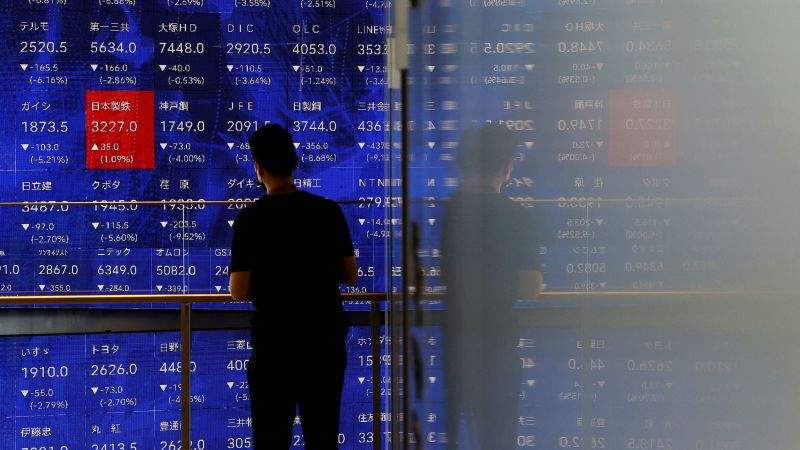US stocks plunged on Monday morning as Friday’s dismal July jobs report continued stoking fears that the US economy is on shaky legs.
The Dow plunged 1,072 points, or 2.7%. The S&P 500 fell 4.1% and the Nasdaq Composite sank by a whopping 6.3%.
The Cboe Volatility Index, or VIX, which measures bets on expected stock market volatility, surged to 55. The last time the fear gauge hit that level outside of the pandemic was the Great Financial Crisis, in 2008.



In this case, from my understanding, it has more to do with the Bank of Japan rasing interest rates a small amount (.15%), forcing some people who were barrowing yen to invest in stocks (called the Carry Trade) to exit their positions. And because they needed to buy yen to pay back the loans, the yen strengthened vs the US dollar, which forced more people who were investing using barrowed yen to do the same thing, creating a feedback loop of people selling stocks at lower and lower prices as they rushed to be the first to sell and beat the strengthening yen, etc. Since the Carry trade is worth something like 20 Trillion USD, this has had massive effects on the Asian and US stock markets.
All of this has happened before and all of this will happen again.
Yeah, the yen is absurd. If the Bank of Japan did nothing, it would have resulted in massive anger among the Japanese people. For context, several years ago, the exchange rate was around 110. Then it went up and up, to around 160. Everything depending on imports rose in price (i.e., 50% up), but wages barely moved. That, my friends, is an unstable setup.